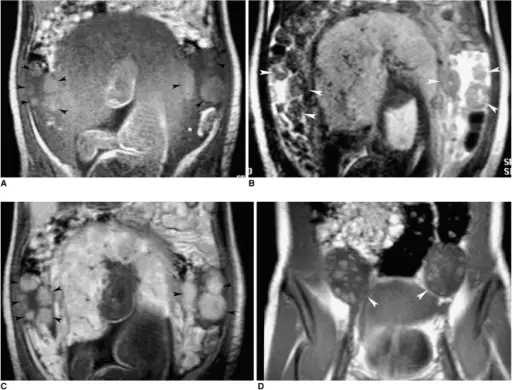Pregnancy luteoma are rare, nonneoplastic lesions of the ovary thought to be caused by the hormonal effects of pregnancy.
What is the Pathology of Pregnancy Luteomas?
The pathology of pregnancy luteomas is:
-Etiology: The cause of pregnancy luteomas is hormonal effects of pregnancy.
-Genes involved: None.
-Pathogenesis: The sequence of events that lead to pregnancy luteomas are: when ovarian parenchyma is replaced by proliferation of luteinized stromal cells that may become hormonally active with production of androgens which occur mostly in female fetus and male fetuses are unaffected.
-Morphology: The morphology associated with pregnancy luteomas shows solid, soft, tan, or flesh colored, with hemorrhagic foci.
-Histology: The histology associated with pregnancy luteomas shows abundant eosinophilic and finely granular cytoplasm.
How does Pregnancy Luteomas Present?
Patients with pregnancy luteomas typically in females with advanced maternal age i.e., more than 35 years old. The symptoms, features, and clinical findings associated with pregnancy luteomas include: asymptomatic however, virilization to mother and female baby.
How is Pregnancy Luteomas Diagnosed?
Pregnancy luteomas is diagnosed during surgery or imaging like ultrasound, MRI, and CT scan.
How is Pregnancy Luteomas Treated?
Pregnancy luteomas is treated by surgery.
What is the Prognosis of Pregnancy Luteomas?
The prognosis of pregnancy luteomas is good. They resolve by 3 months postpartum; androgens levels reduce in the first 2-3 weeks and clinical virilisation symptoms generally disappear in 2–6 months after delivery.



